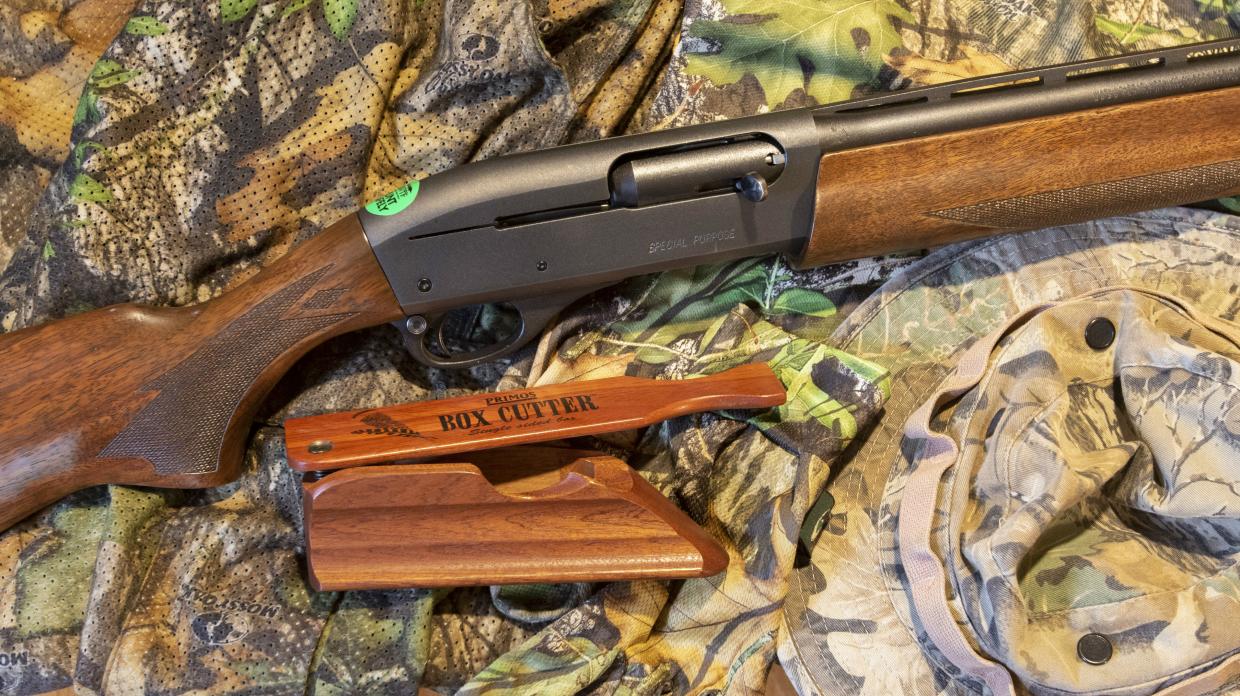Wild turkeys have excellent eyesight and can easily detect movement and colors that are out of place in the woods, making complete camouflage or drab colored clothing very important. Camouflage not only reduces the turkey's chance of seeing you, but also has the same effect on other hunters. Most turkey hunting accidents occur when hunters sneak up on (stalk) other hunters who are calling. To have a safe and successful hunt, remember these tips:
- Be completely sure of your target and what is beyond it before you shoot.
- Always practice the 10 commandments of firearm safety.
- If you hear hen calls like yelps and purrs don’t stalk them. It could be another hunter. Sit and call the birds to you.
- Do not wear red, white, blue, or black; these colors are associated with male turkeys.
- Protect your back. Set up against a large tree or rack and make sure your view isn't obstructed. Don't hide in a place with an obstructed view.
- Do not place decoys too close to where you set up. Never carry an exposed decoy or tail fan while hunting; put them in a bag when carrying them in or out of hunting locations.
- Consider wearing blaze orange when entering or leaving your hunting area.
- If you harvest a turkey, do not carry the exposed bird out of your hunting location. Instead, conceal it in your turkey vest or in a decoy bag and consider wearing some blaze orange.
- If another hunter does approach your position, remain still and call out to him in a loud voice. Do not wave or use your turkey call to get another hunter's attention.
- Always shoot/pattern your shotgun before the season.
- Know your effective range and bring a rangefinder when you hunt. Range several objects upon setting up so you don’t shoot beyond your effective range.
- Keep good visibility so you can see turkeys and other hunters approaching your position. Some hunters tie bright survey tape to a branch above their position to alert other hunters of their presence.
- Respect other hunters. Don't approach areas where other hunters are working birds. Don't get between another hunter and a bird.
- Remember to place an official green safety sticker on your firearm positioned so you can see it when sighting down the barrel. For a new or replacement sticker, visit any MassWildlife office or send a self-addressed stamped envelope to: MassWildlife, 1 Rabbit Hill Road, Westborough, MA 01581.
